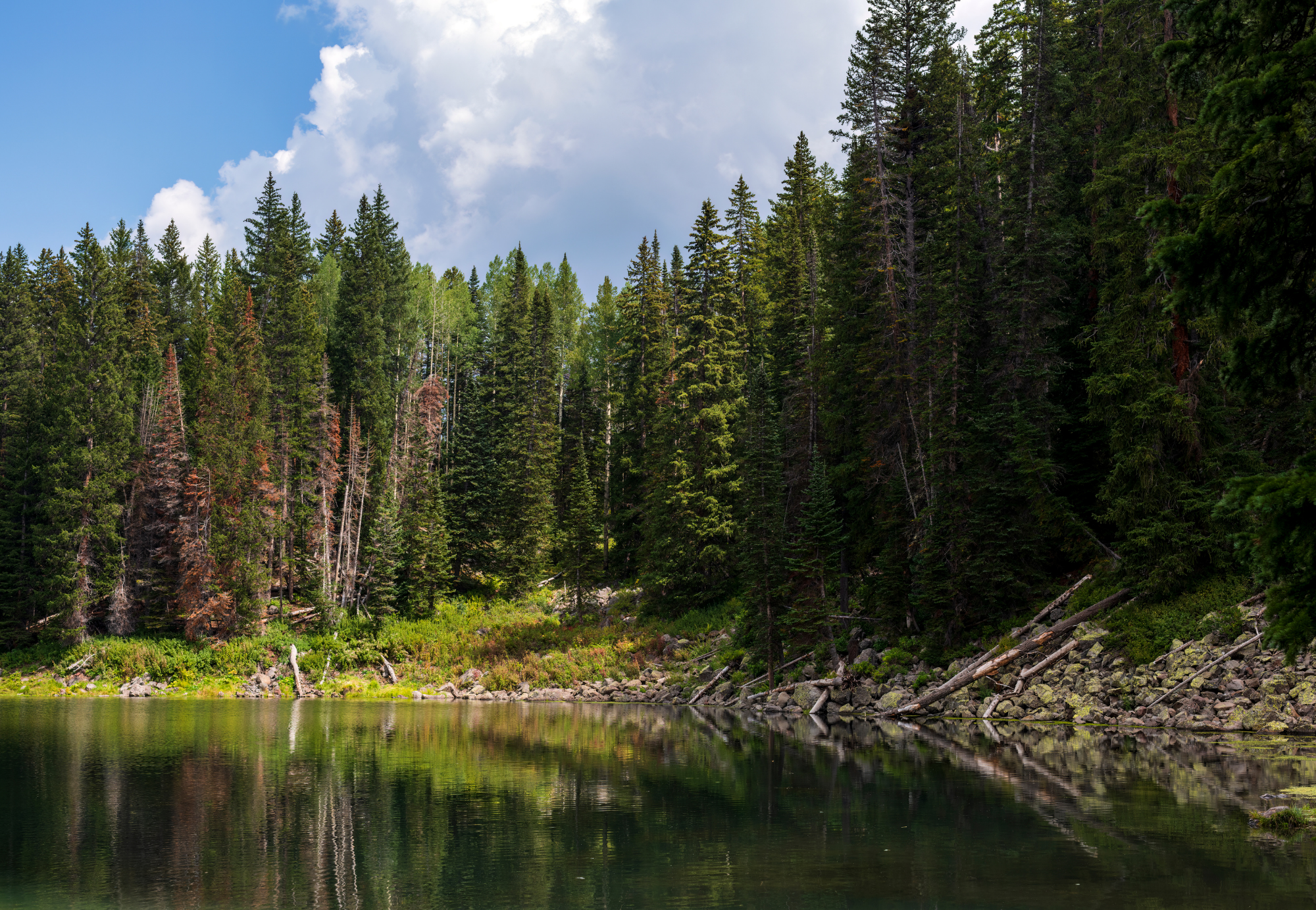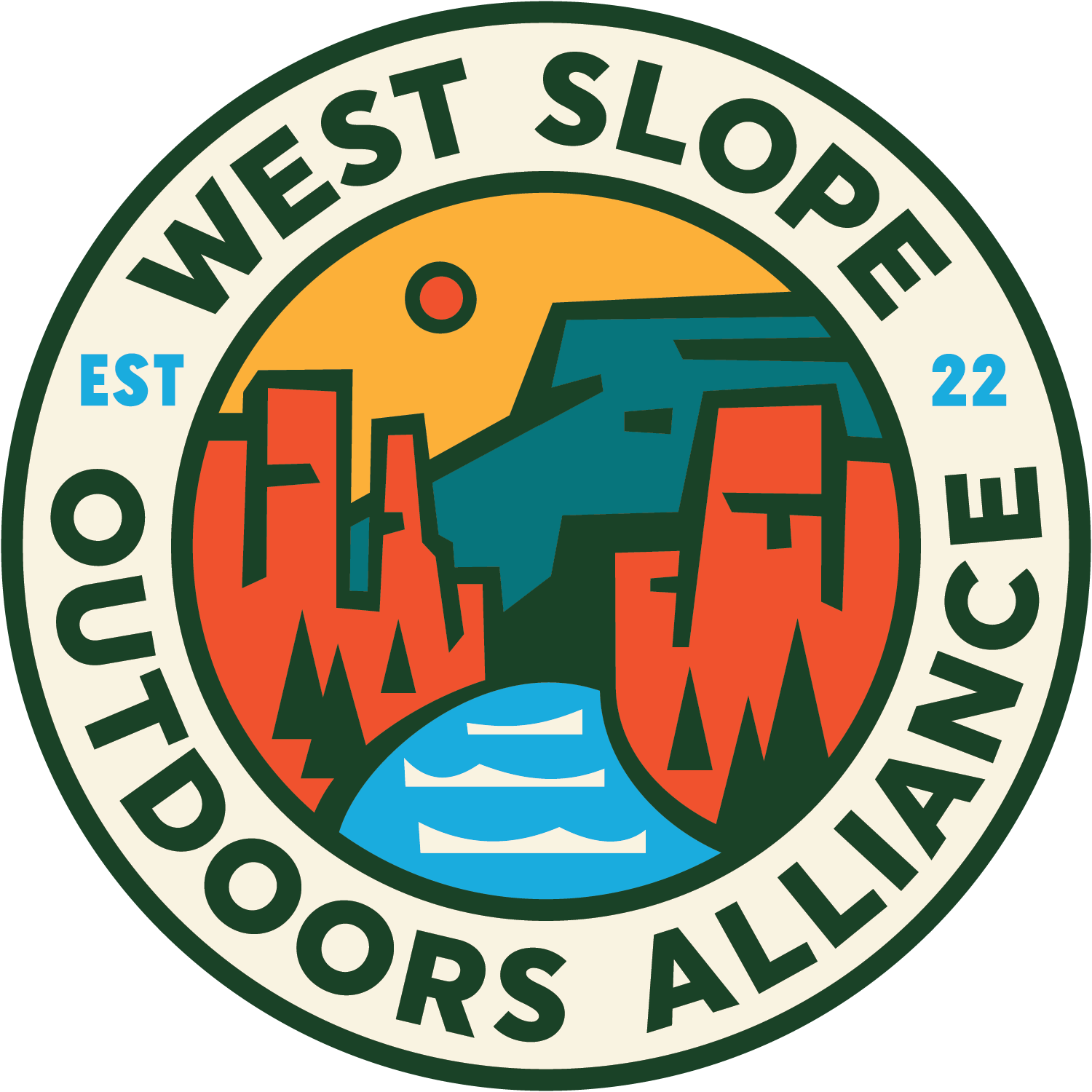
About the WSOA
What is WSOA?
West Slope Outdoors Alliance (WSOA) is a diverse Regional Partnership that covers Delta, Mesa, and Montrose counties. We are a collaboration of individuals representing nonprofits, government entities, businesses, agriculture, ranching and outdoor user groups who are committed to stewarding our natural resources and regional heritage, encompassing wildlife habitat, agriculture, and sustainable outdoor recreation.
-
WSOA brings together representatives from Delta, Mesa, and Montrose counties to forge a collaborative future for the West Slope. We empower collective action through proactive partnerships, inclusive stakeholder engagement, and responsible stewardship of our shared ecological community and unique heritage. We facilitate coordinated efforts across county lines, fostering a future rich in thriving communities, vibrant recreation, valuable agricultural lands, and healthy ecosystems teeming with wildlife.
-
A vibrant West Slope where future generations inherit a legacy of stunning landscapes, abundant wildlife, thriving farms and ranches, and diverse recreational opportunities, all balanced through mindful land use and collaborative stewardship.
-
Driven by the allure of expansive natural landscapes and world-class outdoor recreation opportunities, populations in Colorado's West Slope have surged. With public lands comprising 67% of the region – more than double the national average – Delta, Mesa, and Montrose counties offer a playground for outdoor enthusiasts. This abundance of opportunity serves as a magnet for tourism and new businesses, contributing significantly to the regional economy.
However, this rapid growth presents increasing concern. As more people enjoy the outdoor opportunities here, demand for limited resources is outpacing supply. Trailheads are becoming increasingly crowded, popular destinations struggle with congestion, and the impacts of human activity extend further into agriculture, private lands and habitats. With over 90% of western Coloradans regularly engaging in outdoor recreation, the potential for environmental damage and user conflicts rises, threatening the quality of experience for visitors, the quality of place for residents, wildlife populations, negatively impacting the agricultural operations, and the very landscapes that define our region.
Addressing the challenges of growth and its impacts necessitates a paradigm shift in how we approach outdoor recreation, wildlife habitat conservation, and responsible land use. Only through systemic change at the community level can we ensure future generations inherit a legacy of world-class recreational opportunities, thriving wildlife populations, and vibrant agricultural landscapes. This transformation hinges on strengthened partnerships, shared vision, and sustained collaboration across user groups, jurisdictions, land management agencies, private landowners, local communities, and businesses impacted by these activities.
-
Collaborative - Effective solutions require active collaboration across boundaries and sectors. federal, state, and local governments must work together with diverse user groups, private landowners, and local communities to address dynamic resource demands and support a balanced future.
Broad-based and Inclusive - Achieving holistic solutions demands the inclusion of varied interests throughout the process. We actively engage decision-makers driving tourism and supporting local economies, traditionally underrepresented groups, and all stakeholders impacted by recreational and conservation efforts.
Proactive and Adaptable - We proactively anticipate challenges and opportunities, particularly those related to the impacts of growth, and take informed action to address emerging issues before they become dire. We recognize the inherent uncertainty of the future and prioritize adaptability to continuously refine our strategies and respond effectively to changing circumstances.
Financially Sustainable - Securing necessary funding is crucial for supporting critical investments in wildlife conservation, sensitive habitat protection, sustainable recreation infrastructure, food production, and the preservation of our outdoor way of life. We advocate for innovative funding mechanisms and responsible resource allocation.
Responsible - WSOA champions responsible use of land by diverse users, addressing existing challenges and working towards solutions that balance conservation, recreation, wildlife habitats, and agricultural needs.
-
Foster a thriving West Slope through collaborative stewardship:
Promote cooperative planning - Support approaches and initiatives that integrate all land uses through balanced planning and responsible development to optimize benefits for the entire community, including recreators, wildlife, and agricultural lands and businesses.
Engender community ownership - Cultivate a strong outdoor stewardship ethic among residents, workers, and visitors through education, engagement, and shared responsibility for protecting natural resources and regional heritage.
Strengthen collaborative partnerships - Facilitate effective collaboration across jurisdictions, user groups, land management agencies, and local communities to achieve shared goals for recreation and conservation.
Ensure broad access to sustainable outdoor experiences:
Expand and diversify opportunities - Support inclusive outdoor experiences by fostering new opportunities, adapting access points, and welcoming diverse abilities, backgrounds, preferences, and accessibility needs.
Improve the outdoor experience - Enhance the quality of outdoor experiences in high-demand areas through infrastructure improvements and management strategies, mitigating congestion and conflicts.
Promote responsible visitation - Encourage responsible recreation and sustainable visitation practices to minimize environmental impact, maximize positive experiences, and ensure shared enjoyment of our outdoor spaces.
Prioritize sustainable resource management and conservation:
Protect sensitive habitats - Direct recreational activity away from high-value wildlife habitats and vulnerable ecosystems, prioritizing conservation needs in land-use decisions.
Support innovative solutions - Advocate for and support creative approaches that address resource challenges and demonstrate a commitment to balanced and sustainable resource management.
Monitor and adapt - Monitor the impacts of recreation and land use, adapting strategies and practices as needed to ensure long-term sustainability of natural resources and regional heritage.
-
Set the vision for what this balanced future will be and catalyze action.
Endorse efforts that other groups and individuals are submitting for grants that are in line with our goals.
Educate the public on how to practice responsible tourism and recreation while developing a stewardship ethic.
Activate the community and mobilize volunteers to support events and efforts by other groups that are in line with our goals.
Coordinate conversations between user groups, businesses, land managers, organizations, and government entities to improve outcomes as needed.
Develop and fundraise for projects initiated by WSOA or by partners.
What are the Regional Partnerships?
The 21+ Regional Outdoor Partnerships throughout Colorado exist to learn from and elevate community-level perspectives, values, and priorities, which subsequently inform work across the state. They are composed of local governments, federal land managers, tribes, community-based organizations and partners in conservation, agriculture, outdoor recreation, hunting, angling and the outdoor industry.
This is the state-level vision of the Colorado Outdoor Partnership (CO-OP), a collaborative of private and public sector outdoors leaders across the state. Since 2017, the CO-OP’s diverse stakeholders have worked to balance the needs and desires of diverse user groups including agriculture, recreation, conservation and game sports amidst growing pressures on the natural environment. The CO-OP follows the Colorado Outdoor Principles and serves as the statewide advisory body for the Regional Partnerships Initiative, established in October 2020 by Governor’s Executive Order B 2020 008.
“In 2050, Colorado’s people and economy thrive because of our healthy lands, water, wildlife, and working farms and ranches, accompanied by improved, inclusive outdoor recreation, hunting, and angling opportunities for all.”
What is the history of WSOA?
Spring 2022 – Spring 2023: Coalition-Building
Received initial funding to establish the structure of the group. Held four community listening sessions, evaluated insights shared, and prepared for the next round of grant funding to establish the partnership.Two-page document sharing learnings from the listening sessions
Summer 2023 – Summer 2024: Foundation-Setting and Formalization
After receiving the next round of funding, the group established its first official steering committee, confirmed the geographic scope, and finalized its name. The steering committee created an initial decision-making framework to guide the selection of projects to invest in and is excited to identify the first projects to work on.Review meeting minutes, slide decks, and recordings from past meetings
Fall 2024- Future: Data-Gathering, Long-Term Planning and Iteration
In parallel with continuing to work on meaningful projects that benefit recreation and conservation of the outdoors, the group will determine its approach for pursuing sustainable funding through surveying and data-gathering. Throughout this work, the group will focus on tweaking operations based on learnings and continuing to focus on how to best serve the communities in these three counties.


